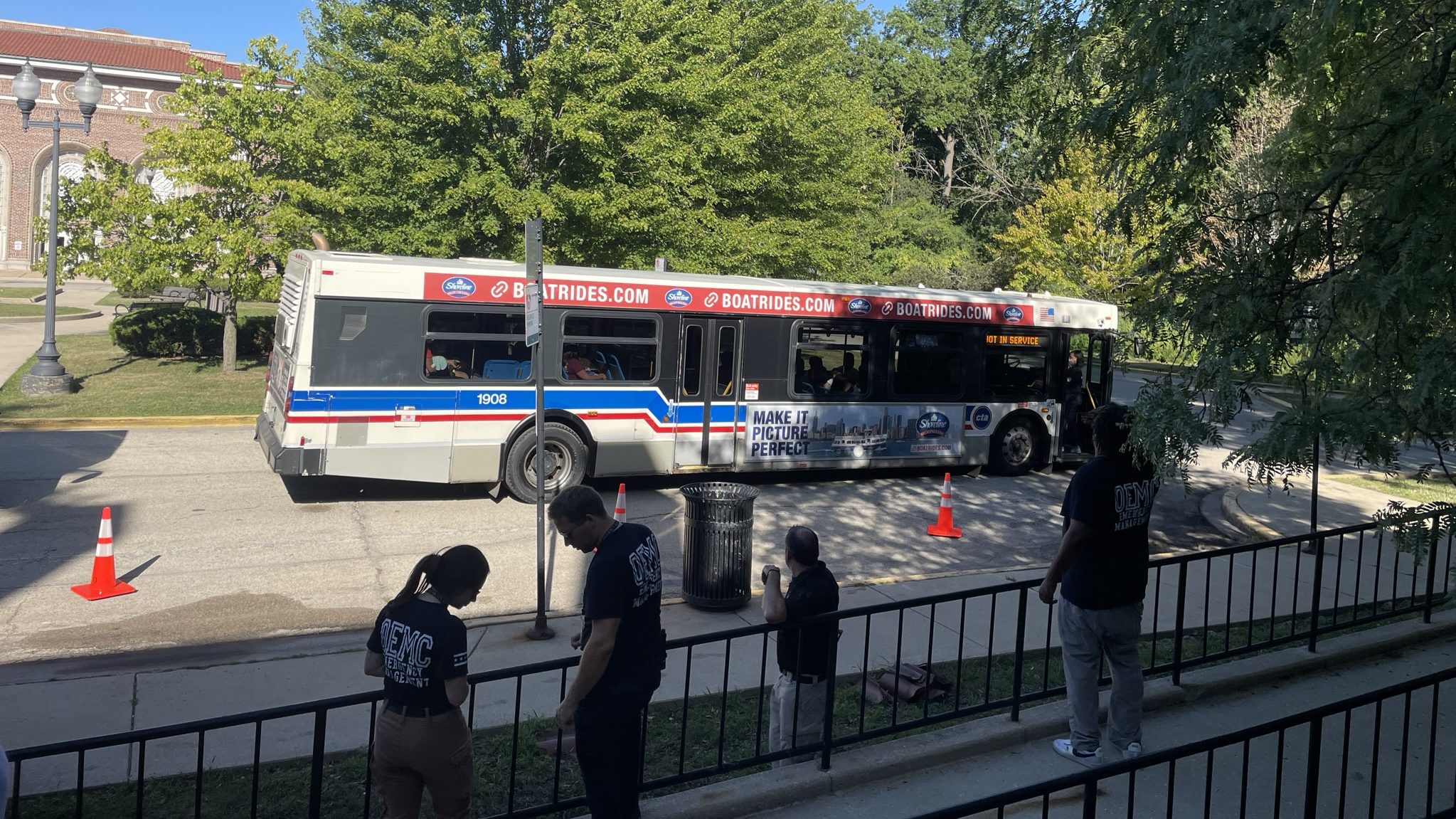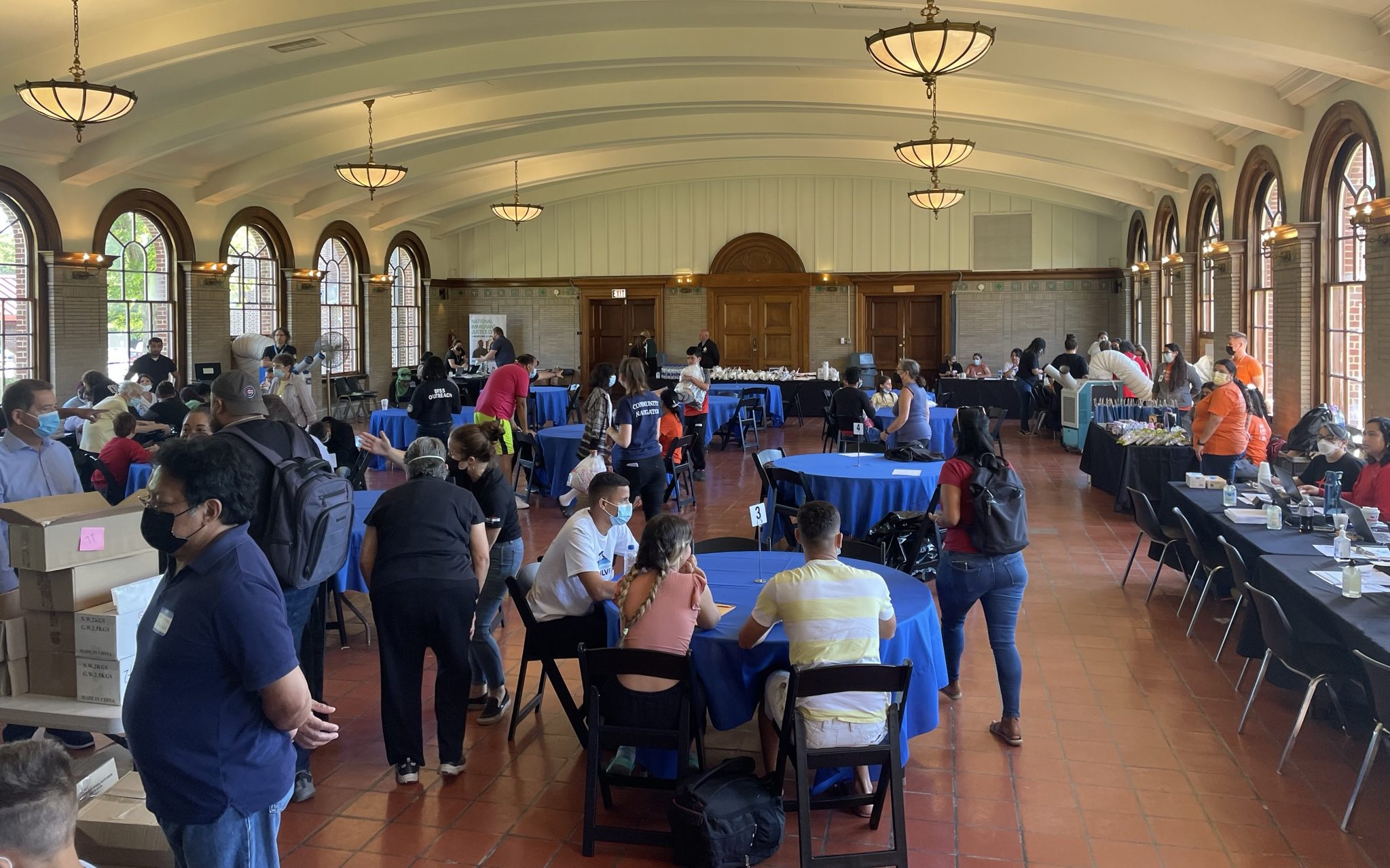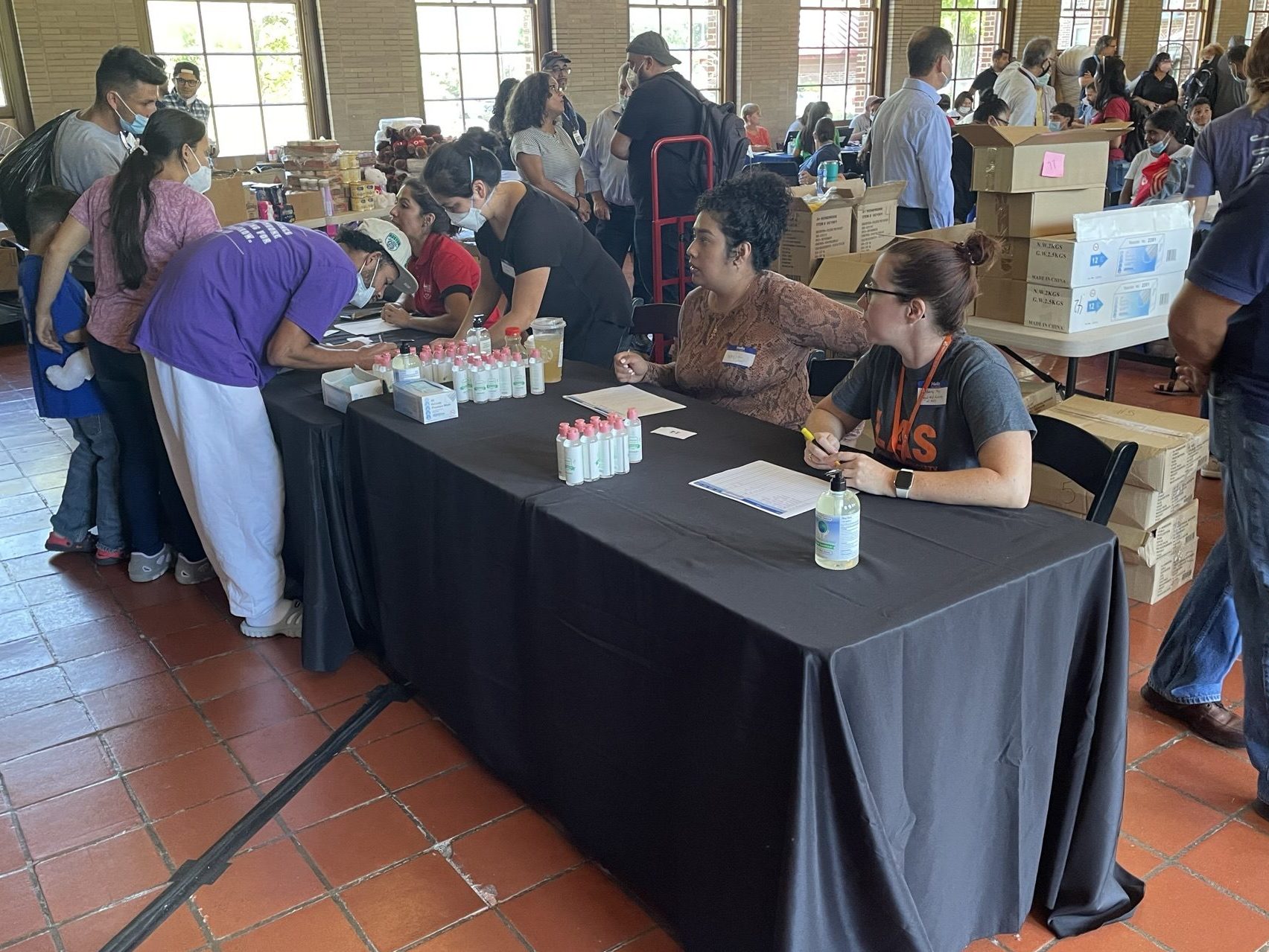by Claudia Lucero & Juan Carlos Hernández
The foreigner who resides with you must be to you like a native citizen among you; so you must love him as yourself, because you were foreigners in the land of Egypt. –Leviticus 19:34
Other than calling for justice for those at the bottom of society, there is perhaps no social issue addressed more in scripture, especially the Old Testament, than the admonishment to “welcome the stranger” and to treat the foreigner the same as the citizens of your nation. It is of little surprise that this is a central theme given the long years of sojourning through the desert experienced by the Jews. As a result, the three Abrahamic faith traditions place a high emphasis on the just treatment of the migrant. Other faith traditions have similar principles. How appalling is it then that people who claim to be people of faith are the very ones at the heart of persecuting the stranger? That stark and shameful reality reached an apex with the recent callous shipping of migrants from Texas to locations across the United States, often to places that were, at least initially, not prepared for such a political stunt and who could offer limited resources for the newcomers. Yet that act of fear and hate was met with acts of love in the places where these migrants arrived. Chicago was one of these places and CRLN was at the forefront of efforts to welcome the stranger.

New arrivals sent from Texas to Chicago arrive at the welcome center after resting for the night in a local shelter. Municipal and state authorities teamed up with nonprofit groups to welcome these immigrants to Chicago.
The economic and political conditions in Central America in particular, and throughout the Americas, continue to be the generator of millions of refugees and displaced persons. Certainly, there have been positive developments in the past year. The triumph of democracy in Honduras, Colombia, Chile, and Brazil is to be celebrated. But so much of the Americas, especially our closest neighbors in Central America face abominable levels of poverty and repression at the hands of governments who are increasingly in the mainstream of reactionary right-wing populism, a global political movement.
The current governments of Guatemala and El Salvador are perfect examples of this. Alejandro Giammattei, president of Guatemala, and the country’s former head jailer ironically spent time in one of the jails he managed, as he was complicit in an inmate massacre. Is it any surprise that his answer to Guatemala’s deep social problems is more violence? This has led to the undermining of the nation’s limited democratic mechanisms like the courts, and increased budgets for the police and the military, support the U.S. is all too happy to encourage and aid.
In El Salvador, President Nayib Bukele is known primarily for two things: gambling on the nation’s economy by embracing cryptocurrency, and a law-and-order crackdown that quite literally has put every young male in the country in danger of death or jail. Thousands of Salvadorans languish in prisons that can only be described as hell on earth.

Nonprofit groups set up a processing center for new arrivals to begin the intake process. Immigrants were able to receive health support and begin a legal evaluation process at the center.
Large political questions must always be viewed from the ground up, from the perspective of people who must live with the consequences of policies made by people in government. That was again made clear this past year. The people of Venezuela have suffered from the current economic conditions in their country made worse by the sanctions imposed by the United States. The sanctions have decimated their economy. And so, like their brothers and sisters in Central America, Venezuelans have been forced to migrate. They have walked to other countries throughout the hemisphere, including the United States, to where they hoped to find new opportunities. Since last year, thousands have crossed into the country. Certain politicians have made them into political pawns hoping to stir up anti-immigrant feelings, and certainly, they have. However, these actions have also stirred us into action, love, and solidarity!
CRLN has been one of the key organizations in advocating for the best wrap-around services for these newcomers. CRLN staff and members were at the welcome center when the first group of migrants was processed on September 2nd. We yelled, “Welcome!” and shook their hands as they took their first steps toward settling into their new home, Chicago. We listened to their stories and experiences. We connected with them and helped them see that we would stand with them in solidarity.

A group of newly arrived immigrants begins the intake process in Chicago. Immigrants were able to receive care and begin processing their cases at the city’s welcome center.
CRLN was present for four reasons: 1) our long history of advocacy work. 2) a staff who have firsthand knowledge of the difficulty of migration and 3) our Sanctuary Working Group, which has been accompanying immigrants and asylum seekers for the past two and a half years. And number four is YOU, our supporters, members, and our network. You make our work possible! Be assured that we will continue to accompany and advocate for and with our immigrant brothers and sisters. Since 2020, we have accompanied more than 100 people from Africa and Latin America.
With our congregational partners, we have helped people to gain a foothold in our country and create a stable life. Because this need is constant, we are hoping to expand our hospitality work in the new year by renting a property and hiring new staff to help us better accompany people in that space. It is an exciting development for CRLN and one we hope you will support by donating online at https://bit.ly/CRLNEndofYear or by downloading the donation form and sending it with your check to our office.
Please join us in making manifest our faith by “welcoming the stranger”.
Sincerely,
Claudia Lucero, Executive Director
Juan Carlos Hernández, Immigration Program Coordinator
